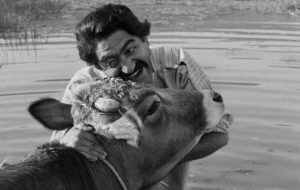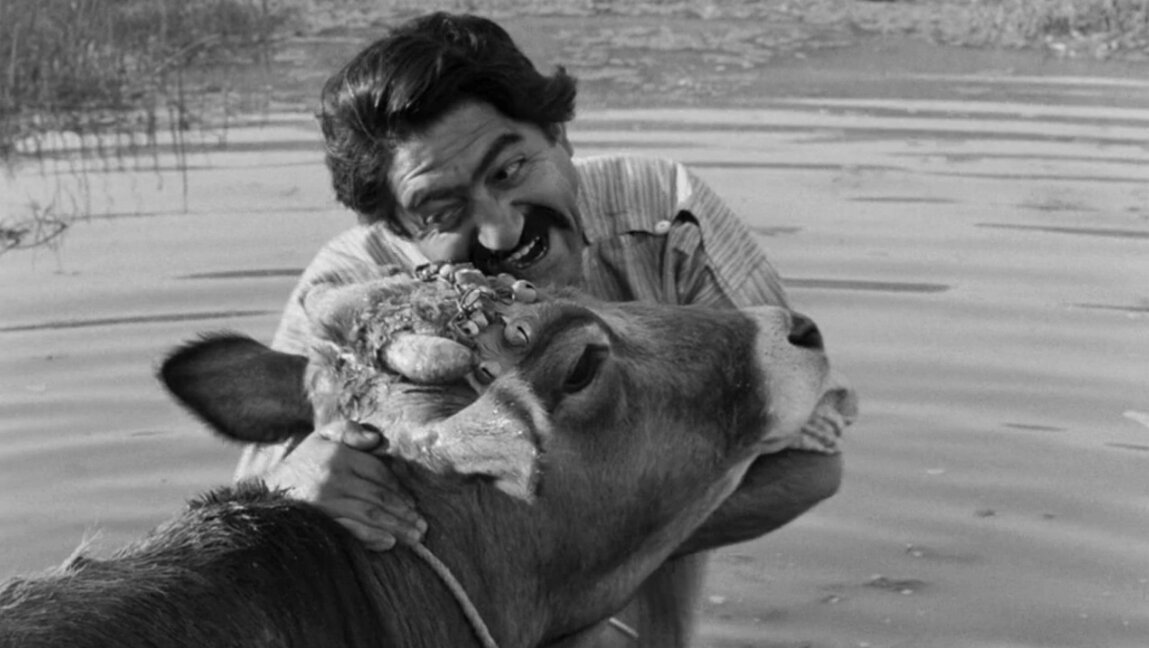Tehran University screens restored version of Dariush Mehrjui’s “The Cow”
TEHRAN- A restored and colorized version of “The Cow”, directed by the late filmmaker Dariush Mehrjui, was screened at the Tehran University on Monday as part of a special event celebrating Iran’s Book Week. Written by the renowned author Gholam-Hossein Saedi based on his own short story, “The Cow” is considered by most critics to


TEHRAN- A restored and colorized version of “The Cow”, directed by the late filmmaker Dariush Mehrjui, was screened at the Tehran University on Monday as part of a special event celebrating Iran’s Book Week.
Written by the renowned author Gholam-Hossein Saedi based on his own short story, “The Cow” is considered by most critics to be the first film of the Iranian New Wave.
The film was restored in 2014 with the participation and cooperation of the Iranian Cinema Organization, the National Film Archive of Iran and the Pishgamane Cinemaye Aria Laboratory.
Produced in 1969, “The Cow” tells the story of a middle-aged villager named Mashd Hassan (Ezzatollah Entezami) who is infatuated with his cow, the only one in the village. When the cow unexpectedly dies, he becomes so deranged that he begins to believe that he has become the cow. His friends decide to take him to the nearby city to be seen by a doctor.
The cast includes Entezami along with Firouz Behjat-Mohamadi, Parviz Fannizadeh, Jamshid Mashayekhi, Ali Nassirian, Ezatallah Ramezanifar, and Jafar Vali.
The movie is very well-known because of its psychological and social criticisms. There are several psychological messages behind the main character’s delusion of being a cow. It opens up Marx’s theory of alienation and social alienation.
The movie has won several awards including the Best Screenplay prize at the second Iranian National Film Festival Sepas in 1970.
It was first screened internationally at Fortnight Directors at the Cannes Film Festival in 1971 and then the 32nd Venice Film Festival of the same year, receiving the FIPRESCI Prize. It was also awarded the Best Actor prize at the Chicago International Film Festival 1971 for the performance by Entezami.
The film explored themes of rural life and existentialism, ushering in a new direction for the industry. Its global recognition laid the foundation for the subsequent international success of Iranian cinema and left an enduring impact on the art form.
One of Iran’s most prominent filmmakers, Mehrjui made 24 films during 53 years of professional career, most of which were inspired by literature and adapted from Iranian and foreign novels and plays.
Mehrjui, 83, was stabbed to death in 2023 alongside his wife Vahideh Mohammadifar, 54, at their home in Karaj, Alborz Province.
SAB/
